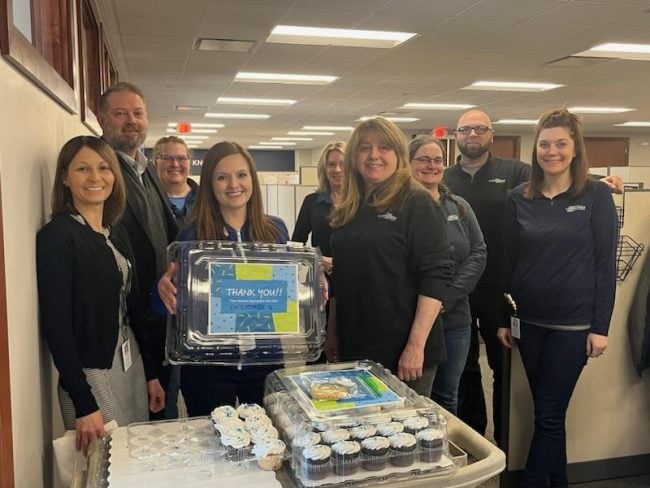In college, I did my best doodling in my chemical engineeringclass. Was it because I was so bored that I would drift off intoday dreaming? Quite the contrary. The information was so over myhead and I was so lost that I quit trying to keep up; therefore, Ichecked out in class.
|I'm seeing credit union board members doing the same thing. Theyare not engaged in their responsibilities. Are they bored or lost?Do they understand enterprise risk management? Do they understandthe new regulations and compliance issues facing credit unionstoday? Do they understand Dodd-Frank? True, does anyoneunderstand Dodd-Frank?
|Credit union boards must be shaped for the present and thefuture because credit union history is unlike anything we haveseen. Here are some ideas for giving boards a wakeup call andcreating a better informed and better equipped board ofdirectors:
|Employ term limits
|I know many board members who have served for more than 25years. The 1980s did nothing to prepare them for today. For thoselong-term board members, you must ask: Are they fighting to keep upand lead in this new economy? Are they wishing for how it used tobe? Or have they checked out because they are lost? Look fordoodling.
|Board members should be on a three- to four-year rotation,depending on the number on the board. Once they rotate off, theyshould remain off for two years before re-joining. This rotationexpands the leadership's knowledge base, keeps ideas fresh, andremoves a sense of entitlement from some board members, a commonill faced by CEOs.
|When I raise the issue of board rotation, I hear the responsehow hard it is to find someone willing to serve. Do you need abigger warning how important board development is? Getting theright people, not just those who volunteer or those who don't wantto leave, is more important than ever before. Every CEO should belooking to build the board for the future.
|Ask hard questions
|Is your board representative of your membership? Moreimportantly, how committed is your board to your desired membershipgrowth? When I see board members struggling to use an iPad,refusing to use online services, or more concerned with protectingthe original SEG than in expanding for the credit union's benefit —I see board members out of touch with the future of creditunions.
|Have you faced some tough choices lately? Fees? Business loans?Branches? Mergers? These significant decisions are going to onlybecome more common as the credit union industry contracts. Harddecisions require not only deep knowledge of the subject and theramifications of these decisions, but also the ability toobjectively make tough choices. Is your board ready? Or are theydoodling again? Or worse yet resisting change out of fear? Toughquestions require informed decision makers.
|Test the Board
|When given the opportunity, I like to test the board during astrategic planning retreat to see how informed they are. Lately,credit union executives are not including this board challenge aspart of the process. Is it because the executive already knows theresults and doesn't want to create a rift in board-executivecommunication? I know that's a delicate balance. The test shouldn'tembarrass anyone as it is self-graded, but it does give a wakeupcall to volunteers who are coasting.
|Every executive I work with inside and outside the credit unionindustry tell me it is exhausting to keep up with the pace ofchange. Credit unions in particular have a tougher time when youadd in regulators and constant compliance shifts.
|How do you keep up? The best way you can: You train, you addexpertise to your people on call inside and outside the creditunion, and you elevate your abilities to create success in a vastlydifferent environment. Are you setting the same expectations foryour board members? They are an important piece of the successstory.
|Credit union board members are not paid for their positions andthey have a long history of representation, especially in thesingle SEG days. As competition changes, as government involvementchanges, and as technology drives credit unions to a greater speedof change, the board component needs to keep pace; otherwise, youwill be getting more doodling than decision-making.
|Russell J. White is a consultant, speaker andpresident of Pinnacle Solutions in Lake Wylie,S.C.
Complete your profile to continue reading and get FREE access to CUTimes.com, part of your ALM digital membership.
Your access to unlimited CUTimes.com content isn’t changing.
Once you are an ALM digital member, you’ll receive:
- Critical CUTimes.com information including comprehensive product and service provider listings via the Marketplace Directory, CU Careers, resources from industry leaders, webcasts, and breaking news, analysis and more with our informative Newsletters.
- Exclusive discounts on ALM and CU Times events.
- Access to other award-winning ALM websites including Law.com and GlobeSt.com.
Already have an account? Sign In
© 2024 ALM Global, LLC, All Rights Reserved. Request academic re-use from www.copyright.com. All other uses, submit a request to [email protected]. For more information visit Asset & Logo Licensing.









